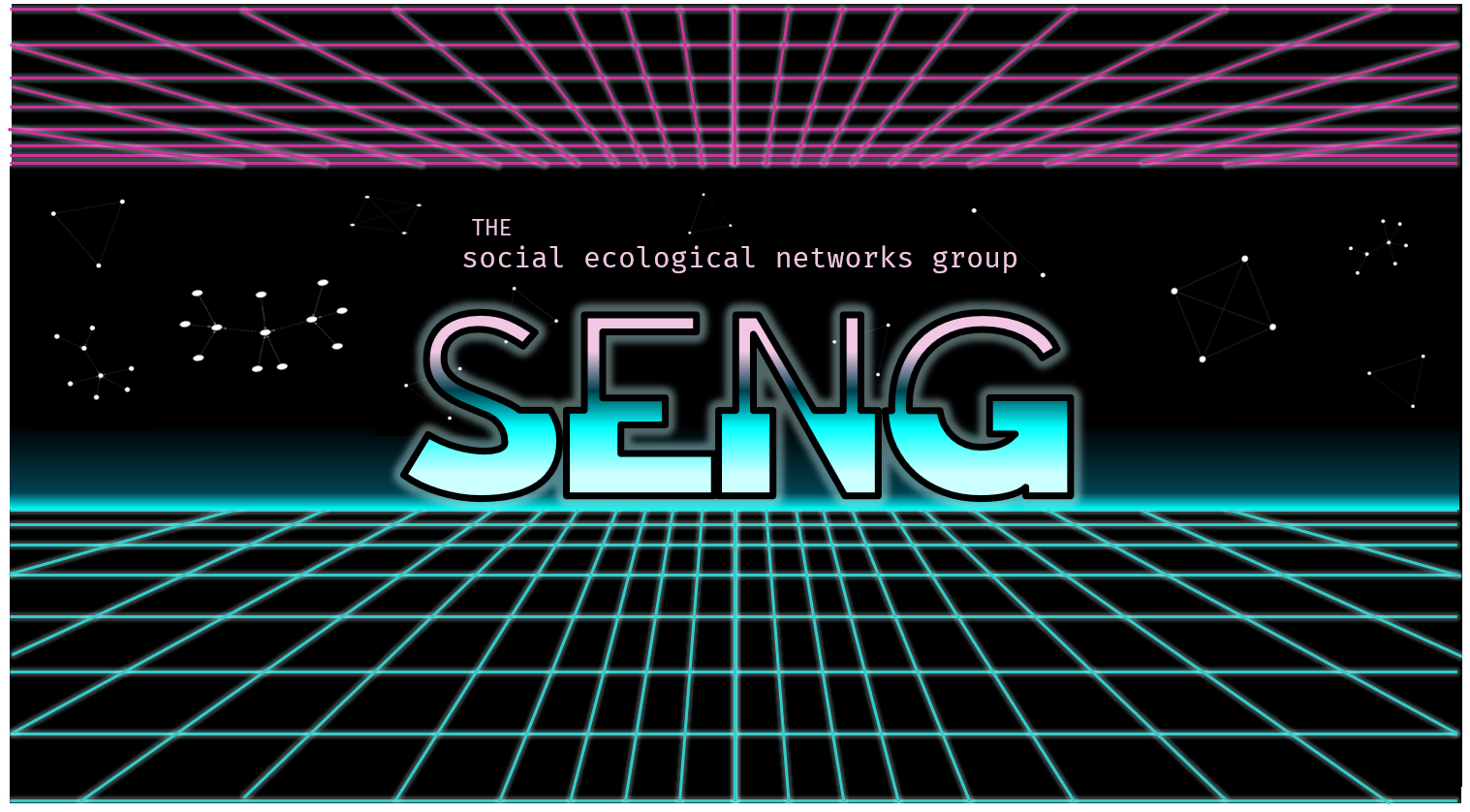
Welcome to the Social Ecological Networks Group. For brevity, we use SENG (sen-jee) as a mnemonic that you’ll find throughout this website and our social media handles. SENG is a graduate student led working group that uses the network concept to think about and study social and ecological processes. You can learn more about us and our research interests by checking out the People tab.
We were motivated to create SENG for numerous reasons. But perhaps the most important of these was the desire for a casual learning community where we can discuss wide ranging ideas about social and ecological processes from a network perspective. As budding academics, we appreciate the formality of courses and seminars. But we also believe that informal discussion and collaboration can seed new – sometimes radically new – ideas.
The Structure of SENG
SENG is loosely structured as a learning community. We hold regular meetings that are oriented around theory and methods. Theoretically oriented meetings are casual happy hour style meetings that are used to discuss specific concepts that are relevant to social-ecological networks. For example, a theoretical meeting might focus on the concept of modularity and how it arises in network structure. The purpose of theoretical meetings is to learn as a collective and consolidate a common language within our learning community. This common language is essential if we want to collaboratively develop new theoretical ideas. Theoretical meetings may incorporate peer-reviewed or popular readings, but this is not a journal club, and we will only read as needed. If you are interested in the literature on networks, check our Canon as a starting point (currently in progess).
Meetings that focus on methods are meant to hone our skills in network analysis and introduce new ways to describe, visualize, model, and simulate networks. Expertise is not required to participate in SENG and our learning community has a range of skill sets and experiences with network analysis. In method meetings, we will draw upon these experiences and share skills. For example, if one of us has experience with network graphs or exponential random graph models, they might volunteer to teach an introduction to these techniques at a methods meeting. When we are interested in methods that no one in our group can share, we will organize workshops with network experts and organizations that can teach us these methods.